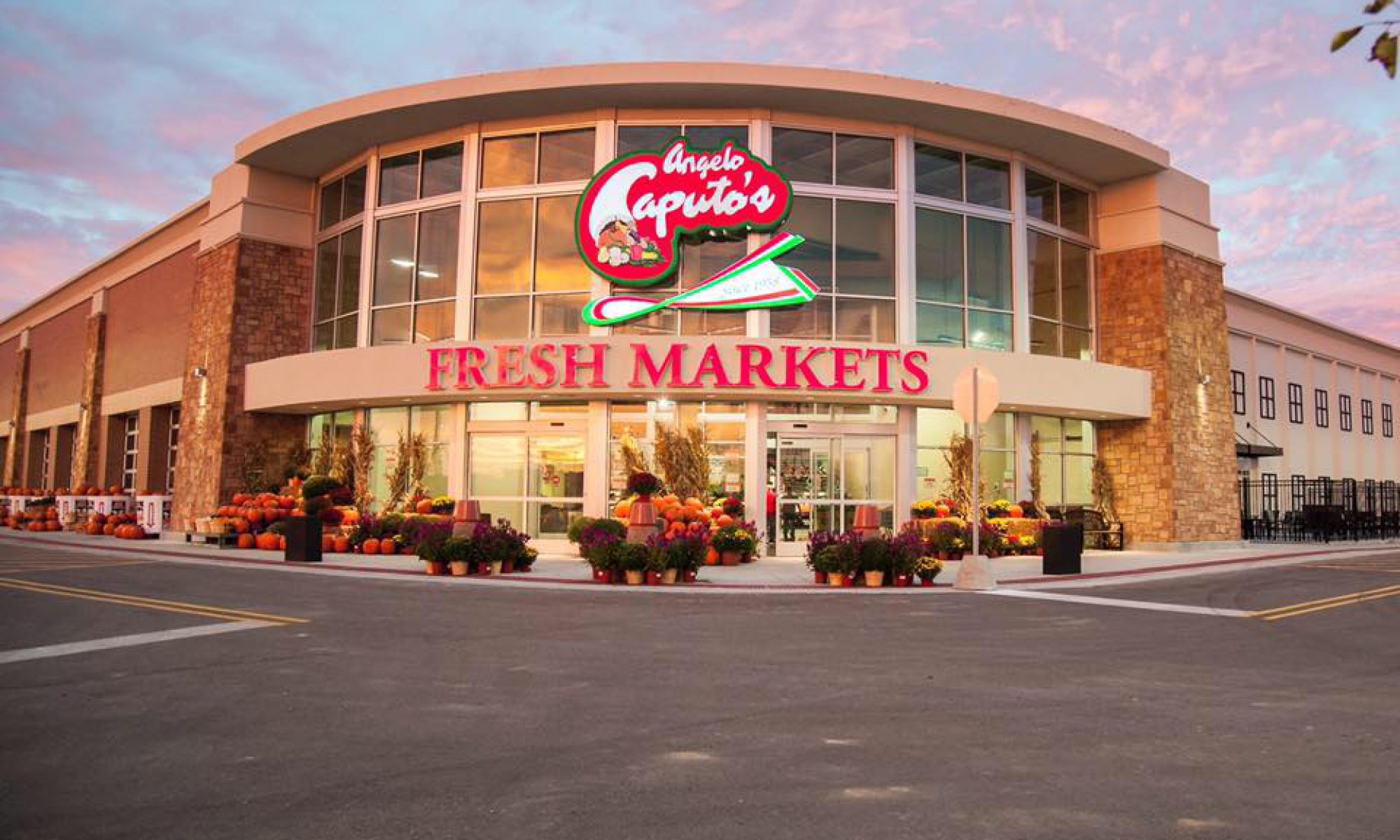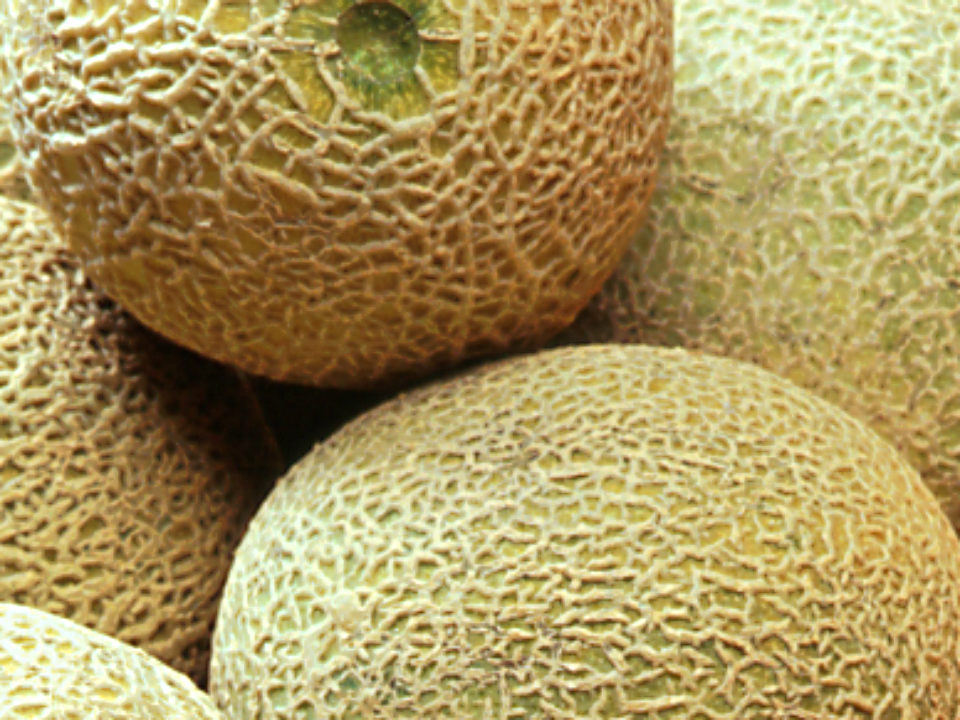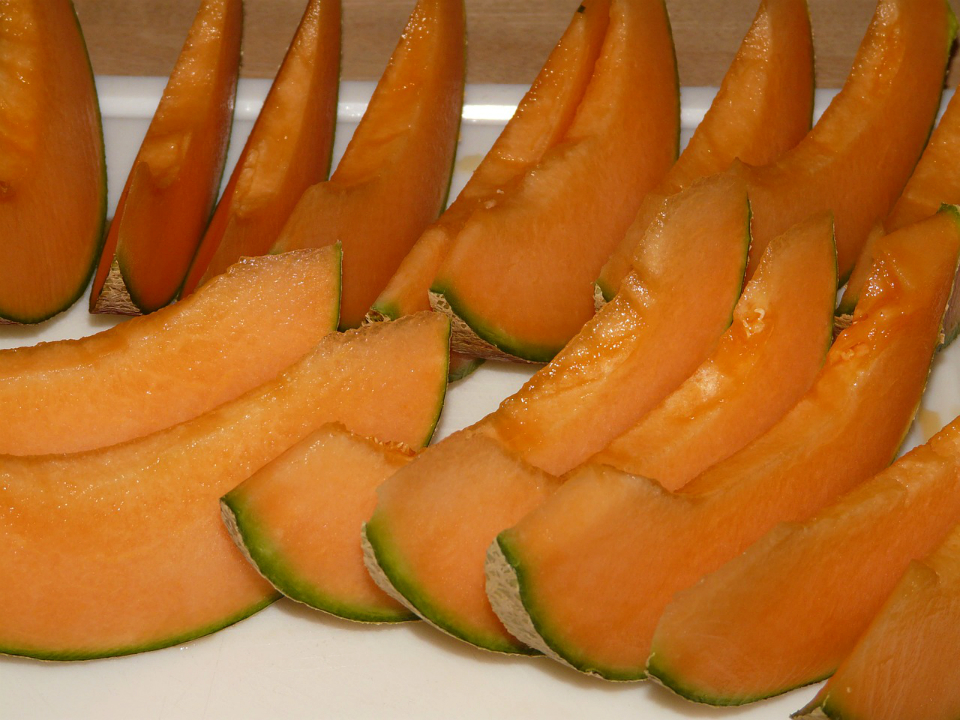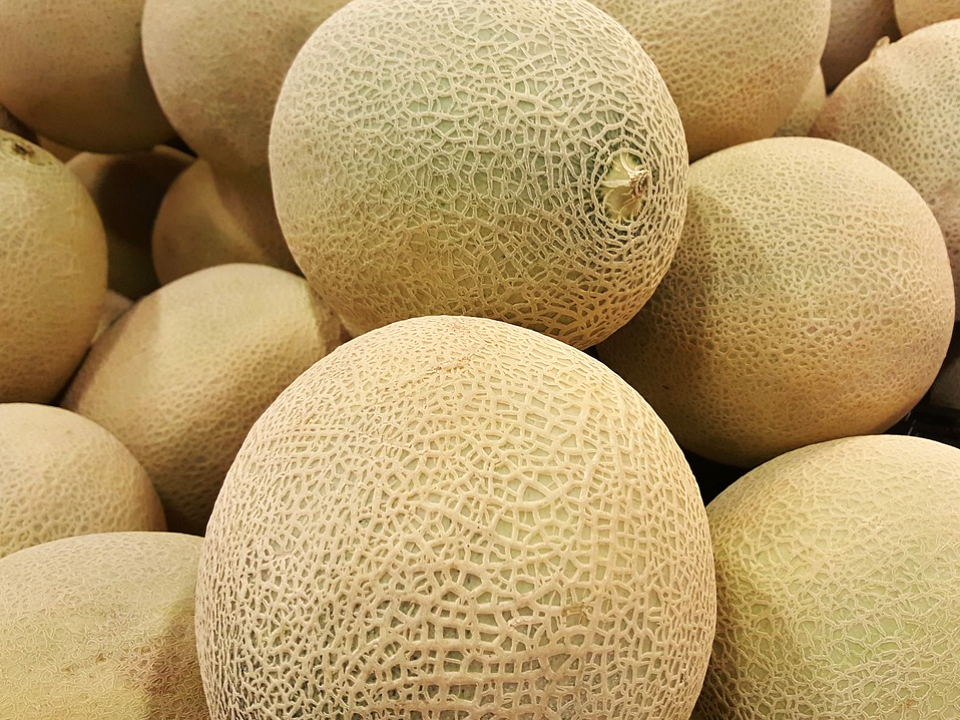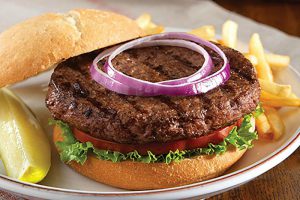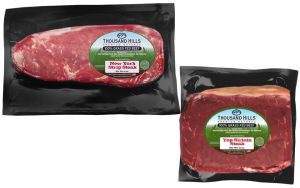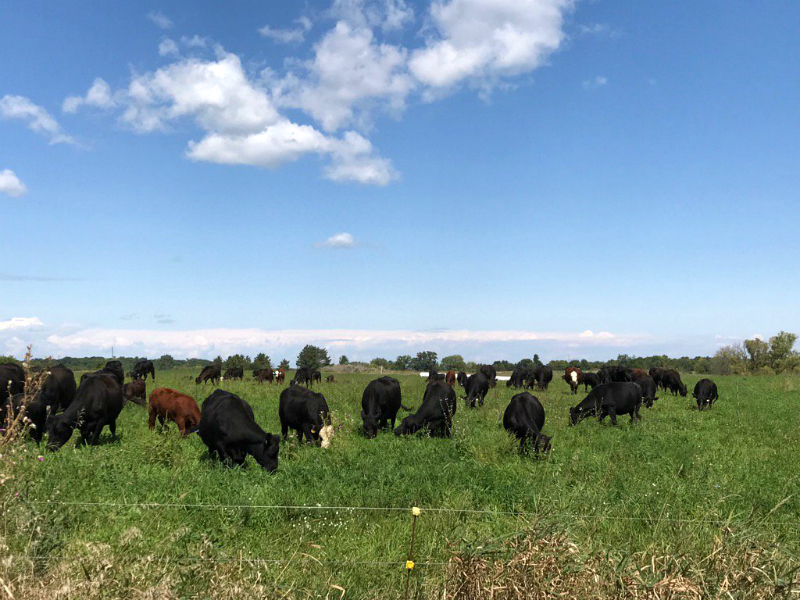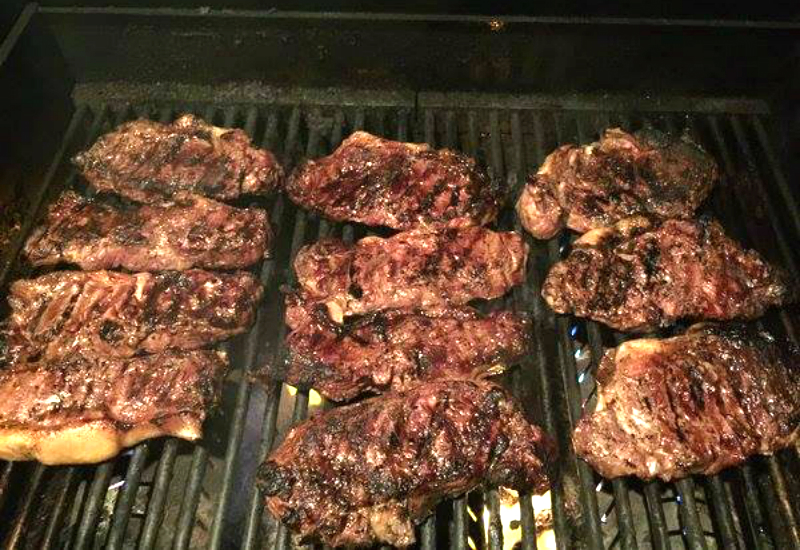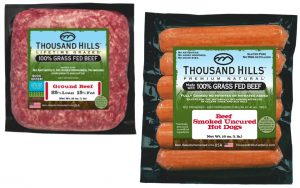Eating fresh cantaloupe during the growing season is a joy unto itself, especially if you know how to pick a good one. Here’s how to consistently ensure that the cantaloupes you select are ripe, sweet, and flavorful.
Appearance matters. This may seem obvious but always select cantaloupes that look good. Avoid obviously defective or damaged fruit. This includes any melon with a cracked rind, soft spots, bruises, or moldy patches.
Steer clear of stems. Melons easily detach from their stems when ripe. If you see a cantaloupe with a piece of stem still attached or with a torn rind where the stem was attached, that means it was taken from the vine too soon. And since they do not continue to ripen after being picked, a cantaloupe with its stem still attached should not be selected.
Go for the gold. The rind of a ripe cantaloupe should have a gold or orange tint with well-developed netting. If you see a lot of dark green and the net-like textured part appears to be rather thin, the cantaloupe is not ripe. Also examine the spot that shows where the melon was resting on the ground. A smooth, yellow patch means you’ve got a ripe melon.
Lightweights need not apply. When comparing cantaloupes, pick them up. A good cantaloupe contains a fair amount of water and will thus feel heavy for its size. All other things being equal, go with the heavier fruit.
How does it feel? A healthy, ripe cantaloupe is neither rock-hard nor soft and squishy. The melon should be uniformly firm. There should be a slight indentation where the stem used to be, indicating that the melon came off the stem easily and that indentation should not be wet. The blossom end, which is opposite the stem end, should give slightly when pressed.
Smell the blossom end. A sweet, ripe cantaloupe smells pleasantly sweet, especially at the blossom end. A cantaloupe that has no sweet aroma should not be considered.
In addition to being delicious, cantaloupe is quite healthy. Thanks to the high water content, one cup only contains about 55 calories. Cantaloupe is a great source of vitamins A and C, potassium, beta-carotene, and fiber.
Now that you know what to look for, stop by any of Angelo Caputo’s Fresh Markets‘ seven store locations and get some delicious cantaloupe today!
